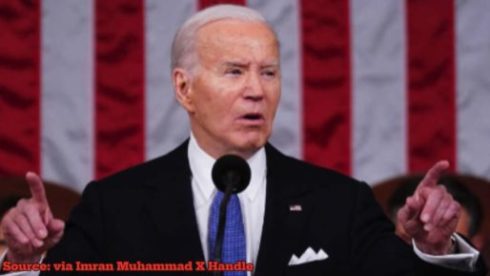The Biden administration has decided to lift a three-year-old ban on the sale of offensive weapons to Saudi Arabia, marking a significant shift in U.S. foreign policy. The ban, which was instituted by President Joe Biden early in his administration, was intended to pressure Saudi Arabia to end its involvement in the war in Yemen. The decision to reverse this policy comes as Saudi Arabia and Yemen have maintained a United Nations-led truce since March 2022, resulting in a significant reduction in cross-border hostilities.
The U.S. State Department confirmed that it would lift the suspension on certain air-to-ground munitions transfers to Saudi Arabia, signaling a return to a more traditional arms transfer policy. A senior department official noted that future arms sales would be evaluated on a case-by-case basis, in line with the Conventional Arms Transfer Policy. This decision follows a series of briefings provided to Congress, where lawmakers were informed of the Biden administration’s intention to resume sales. According to sources, these sales could begin as early as next week, with formal notifications already underway.
Congressional Response and Oversight
The Biden administration’s decision to lift the ban has sparked a bipartisan response from Congress, where both Democratic and Republican lawmakers have expressed concerns over the implications of resuming offensive weapons sales to Saudi Arabia. In recent years, Congress has scrutinized arms sales to the kingdom, citing the devastating impact on civilians during the Saudi-led campaign in Yemen and broader human rights concerns. Under U.S. law, significant international arms deals require congressional review before they can be finalized, providing lawmakers with an opportunity to influence the outcome.
Despite these concerns, the administration appears confident in its decision, citing Saudi Arabia’s adherence to the terms of the UN-led truce as a key factor. Since the truce’s inception, Saudi airstrikes in Yemen have ceased, and there has been a marked decline in cross-border attacks from Yemen into Saudi territory. This progress has been used by the Biden administration to justify the resumption of arms sales, arguing that the Saudis have fulfilled their commitments, and the U.S. must now honor its side of the agreement.
Changing Dynamics in U.S.-Saudi Relations
The decision to lift the ban comes amid shifting geopolitical dynamics in the Middle East, particularly in the wake of the October 7 attack on Israel by Hamas. The heightened threat level in the region, coupled with the involvement of Iran and the Hezbollah group in Lebanon, has softened opposition to the provision of offensive weapons to Saudi Arabia among U.S. lawmakers. Both Democratic and Republican members of Congress have historically raised concerns over Saudi Arabia’s human rights record and the civilian toll of its campaign in Yemen. However, the recent developments have led to a more pragmatic approach to the U.S.-Saudi alliance.
The Biden administration is also engaged in broader negotiations with Riyadh, which include discussions on a defense pact and civil nuclear cooperation. These talks are part of a larger effort to secure Saudi Arabia’s normalization of relations with Israel, although this goal remains challenging. Since the U.N.-led truce in March 2022 between Saudi Arabia and the Houthi rebels in Yemen, there have been no Saudi airstrikes in Yemen, and cross-border attacks into Saudi Arabia have largely ceased, further justifying the Biden! administration’s decision to resume weapons sales.
Biden Administration Reverse Of Ban Of Sales of Offensive Weapons To Saudi Arabia:Impact on the Yemen Conflict and Regional Stability
The lifting of the ban on offensive weapons sales to Saudi Arabia has significant implications for the Yemen conflict and regional stability. The war in Yemen, widely viewed as a proxy battle between Iran and Saudi Arabia, has resulted in a humanitarian crisis, with hundreds of thousands of deaths and 80% of the population reliant on aid. The conflict began in 2015 when the Iran-aligned Houthis ousted the Saudi-backed government from Sanaa, leading to a prolonged military struggle involving a Saudi-led coalition.
The Biden administration’s initial stance in 2021 was to halt offensive weapons sales to Saudi Arabia as a response to the devastating civilian casualties caused by the kingdom’s military campaign. However, the recent developments, including the cessation of Saudi airstrikes and reduced cross-border hostilities, have prompted a reassessment of this policy. A senior U.S. administration official emphasized the ongoing efforts to curb Houthi capabilities, stating, “We are regularly conducting airstrikes to degrade Houthi capabilities, an effort that is ongoing and will continue together with a coalition of partners.”
The U.S. has also intensified its pressure on the Houthis by designating them as Specially Designated Global Terrorists and imposing sanctions on their smuggling networks and military apparatus. As the U.S. resumes offensive weapons sales to Saudi Arabia, it is clear that the Biden administration seeks to balance its strategic interests in the Middle East with its commitment to mitigating humanitarian crises and maintaining regional stability














